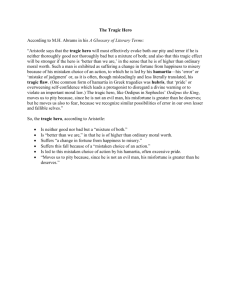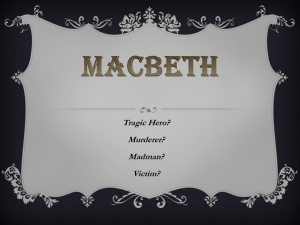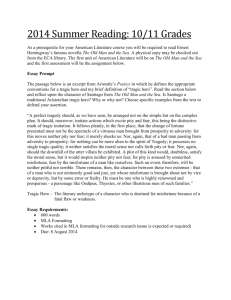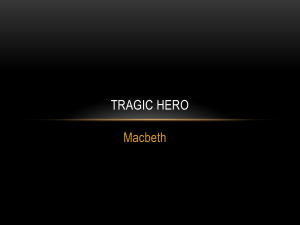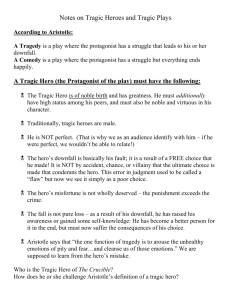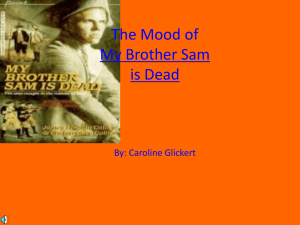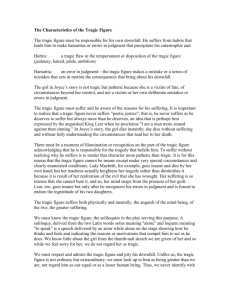Aristotle`s Definition of a Tragic Hero
advertisement
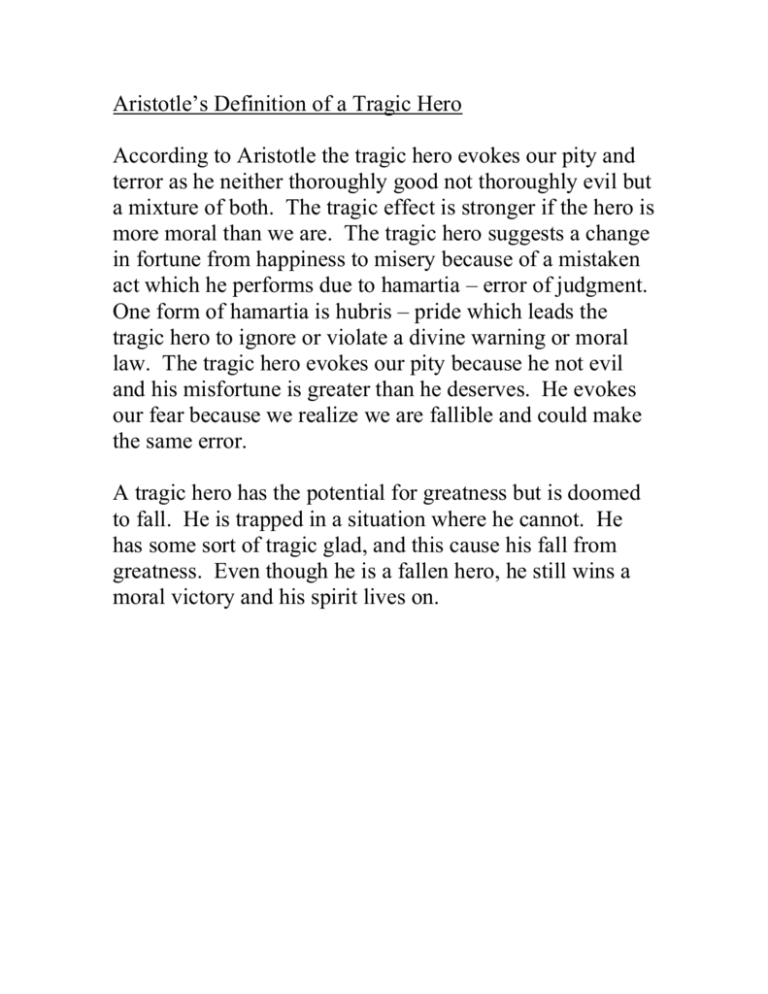
Aristotle’s Definition of a Tragic Hero According to Aristotle the tragic hero evokes our pity and terror as he neither thoroughly good not thoroughly evil but a mixture of both. The tragic effect is stronger if the hero is more moral than we are. The tragic hero suggests a change in fortune from happiness to misery because of a mistaken act which he performs due to hamartia – error of judgment. One form of hamartia is hubris – pride which leads the tragic hero to ignore or violate a divine warning or moral law. The tragic hero evokes our pity because he not evil and his misfortune is greater than he deserves. He evokes our fear because we realize we are fallible and could make the same error. A tragic hero has the potential for greatness but is doomed to fall. He is trapped in a situation where he cannot. He has some sort of tragic glad, and this cause his fall from greatness. Even though he is a fallen hero, he still wins a moral victory and his spirit lives on. Usually tragic heroes are: • • • • Born in nobility Exhibits heroic traits Responsible for their own fate Endowed with a tragic flaw Tragic heroes often: Goes against a powerful force Fall from great heights on high esteem Doomed to make a serious error in judgment Realize they have made an irreversible mistake Faces and accepts death with honor Meet a tragic death The audience is affected. • Feels pity or fear • Experienecs catharsis • Purge heavy emotions REMEMBER: THE AUDIENCE IS PART OF THE TRAGEDY.

